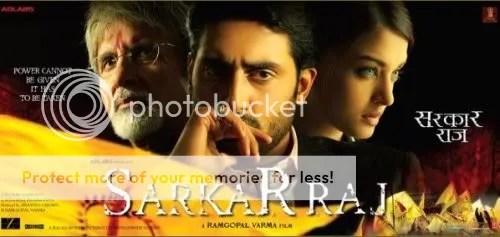I finally managed to get myself into a movie watching mode and watched this bengali film called ‘Antaheen‘ – which literally means ‘Endless’, although the english title is probably ‘Endless Wait’ which is more in tune with the storyline. Well, I quite liked it and imho its probably a big deal, worth a blog post….really. I grew up when the only good enough watchable fare from Bengali cinema were the classics from the black & white period of the 60s-70s. Anything after that and in colour was utterly disgusting, crass and totally out of sync with any kind of sensible or relateable bengali social structure. There were little pieces of jewels like 36 Chowringhee Lane, Paroma, Atanka, Kharij etc, but considering the mature content nature I never got to venture that side until much later.
Well, from the 90s onwards, the alternative stuff started pouring in, primarily led by Rituparno Ghosh’s ‘Unishe April‘. Most of these films were based upon stories surrounding upper-middle class households and explored the dynamics in the relationships between the main characters – women occupied in some kind of art related field and involved with wimpy men seeking emancipation and men who smoked like chimneys & worked in media houses. They could be in various stages of relationship maturity – dating furiously, about to be married, married, married but living apart, about to be divorced, divorced yet dating each other furiously, divorced and married to other people and still wanting to get back… whatever gets them to put their relationship status as ‘complicated’. The dialogues were stretchy and laced with abusive language to bring in some kind of contemporary flavour, the scenarios pretentious, and the characters contrived to carve in complications. And they all looked the same. Compounded by the fact that there were a handful of actors who kept rolling by in all these films.
Whether it was the street-fare commercial stuff or the alternative films, both lacked money and it showed. The finances started pouring in, when rich production houses from Southern India started investing in the Bengali film industry. However, it also started an era when commercial Bengali cinema garbed itself into a mode which was always associated with the over-the-top action movies from the Southern shores – elaborate sets, cavalcade of vehicles, baddies, violent fights, dances (the horror!), facial gymnastics, everything that could alienate them even further.
Perhaps, this also led to a second round of alternative set of cinema being churned out. These had a much richer look than their earlier cousins, but somehow the pretentious facets still haunted them. I mostly shied away from them as well. Anuranan being one. The last film that I really liked was ‘Dosar‘, a black & white film by Rituparno Ghosh. It was stark, with effortless performances from most of the cast members. Antaheen (from the same director as Anuranan) just got added to my list of liked movies. It is the story of a television journalist & police officer, who strike up a friendship over the internet as strangers and seperately in real life as well. Parellely, goes the track of an estranged middle aged couple who still rely on each other as old habits, yet prefer the distance between them that allows them to be close without stepping on each others toes. There are a few other tracks as well, which bring in their share of resonance to the story. There was a small one with Mita Vashist. This lady is a bombshell and made the minor character of Mrs.Mehra the most profound of them all. The sets and costumes were contemporary, dialogues mostly pert and very very normal, actors looked their part and the music… oh beautiful! (And apparently Shantanu Moitra did it for free.) Some of the trimmings looked a bit forced though, as if to bring in a touch of the exotic. But then these can be comfortably overlooked for an evening well spent.
The following are the lyrics of the song Pherari Mon (Wandering Mind) that got Shreya Ghosal a National Award this year. Even if you can’t read bengali, you can go ahead and listen to the song here
আলো আলো রং, জমকালো চাঁদ ধুয়ে যায়
চেনাশোনা মুখ, জানাশোনা হাত ছুঁয়ে যায়
ফিরে ফিরে ঘুম ঘিরে ঘিরে গান রেখে যায়
কিছু মিছু রাত, পিছু পিছু টান ডেকে যায়
আজও আছে গোপন ফেরারী মন
বেজে গেছে কখন, সে টেলিফোন
চেনাশোনা মুখ, জানাশোনা হাত রেখে যায়
ফিরে ফিরে ঘুম ঘিরে ঘিরে গান ডেকে যায়
আজও আছে গোপন ফেরারী মন
বেজে গেছে কখন, সে টেলিফোন॥
ছোট ছোট দিন আলাপে রঙিন, নুড়ির মতন
ছোট ছোট রাত চেনা মৌতাত, পলাশের বন
আহা, অগোছালো ঘর, খড়কুটো মন চিলেকোঠা কোণ
কথা ছিল, হেটে যাবো ছায়াপথ
আজও আছে গোপন ফেরারী মন
বেজে গেছে কখন, সে টেলিফোন॥
কিছু মিছু রাত, পিছু পিছু টান অবিকল
আলো আলো রং জমকালো চাঁদ ঝলমল
আজও আছে গোপন ফেরারী মন
বেজে গেছে কখন, সে টেলিফোন॥
গুড়ো গুড়ো নীল, রং পেনসিল জোছনার জল
ঝুরো ঝুরো কাঁচ, আগুণ ছোঁয়াচ দেখেছে আঁচল
ফুটপাথে ভিড়, জাহাজের ডাক ফিরে চলে যায়
কথা ছিল, হেটে যাবো ছায়াপথ
আজও আছে গোপন ফেরারী মন
বেজে গেছে কখন, সে টেলিফোন॥
আলো আলো রং, জমকালো চাঁদ ধুয়ে যায়
চেনাশোনা মুখ, জানাশোনা হাত ছুঁয়ে যায়
আজও আছে গোপন ফেরারী মন
বেজে গেছে কখন, সে টেলিফোন॥
